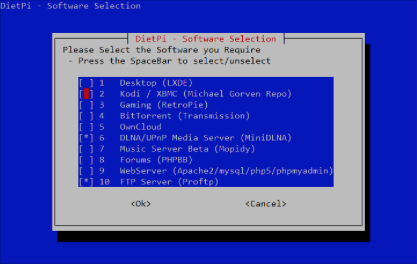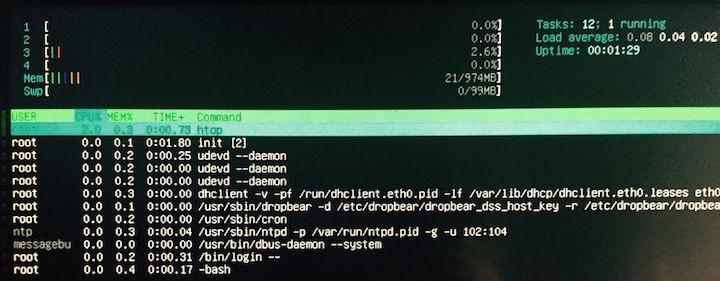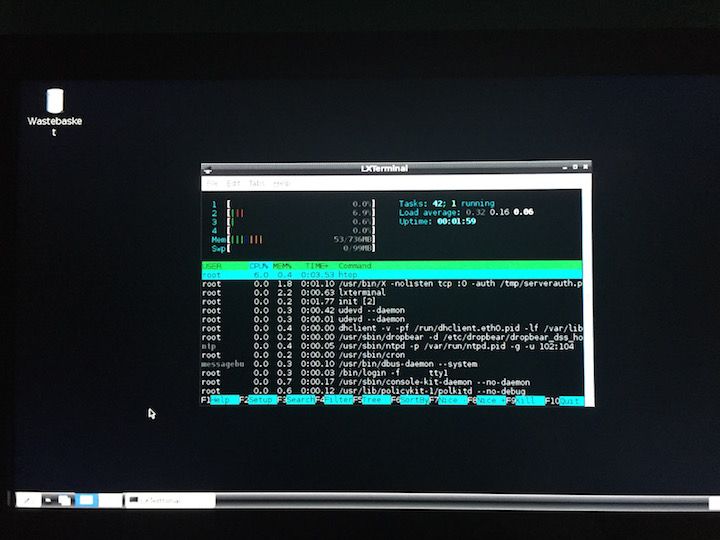DietPi for Raspberry Pi & ODROID-C1
DietPi for Raspberry Pi & ODROID-C1

I talked about DietPi before, A minimal distribution that now support ODROID-C1 boards. It have some apps to custom their own OS.
It's an idea I always had in my mind: Build a minimal OS. The user can choose what kind of software want to make the function of Media Center, Web/FTP server or emulators with RetroPie...
It has grown in performance since the last time I met, and now the concept is different. Initially we have a Debian minimal distribution (the size of the image is only 780 MB) with a series of pre-installed packages, which are:
Dietpi-config: Configure your board, you can overclock, configure networking, etc).
Dietpi-software: Install software (Look at the screenshot that heads this article).
Dietpi-update: Update the distribution.
Htop.
Ramlog (All logs in memory and uses less than 0.5MB of RAM).
Dropbear (SSH Server light).
Scripts preinstalled: treesize, cpu, update, logclear.
Automatically configures your network WIFI modifying a file in /boot/dietpi.txt.
For ODROID-C1, the list of software to install "ready to run" is similar to what we have on the Pi: Bittorrent Server, OwnCloud, MiniDLNA, phpbb3 (forum) or Web/FTP Server among others.
[ First contact ]
First the distro makes two reboots to increase partition size according to the capacity of your SD card. We see that loads the ntfs-3g driver and ask for the root user and its password raspberry.
Now give us a number of options:
Select software optimized for DietPi. Alerts you if you want to use a USB hard drive. This decision can not be changed in the future. It is recommended if you are using it to use BitTorrent, OwnCloud, Kodi, hindfoot, MiniDLNA. Among the software that can be installed, highlight the above, plus Modipy, Proftp, No-Ip, among others.
Additional Software: Vim, OpenSSH Client or Samba Client.
Configure the distro.
Go Start Install. Follow along in the process.
If you do not select any software, it will give you the option to boot a Debian Minimal, which is what I chose. The system reboots. Let's see how our system has run:

I found curious that when trying to log through SSH, tells me to complete the installation if I'm using DietPi-Software. It's a detail.

The system takes just 21 MB of RAM. I going to run Dietpi-software to install LXDE + Kodi. I get a message if you want to start from boot any software selected. I say no and returns to the main menu. Go Start to install and then the Start Install button.
Begins to install LXDE (500 MB on the SD card) and takes about 41 seconds to install 415 packages. Phew, is the last time I do it.
Kodi 14.1 must take 145 MB and spend 30 minutes to install the software. From LXDE, it just take 11% of RAM.

Before ending this article I want to congratulate its author, Dan Knight, which accepts donations via Paypal.
Link: github.com > DietPi